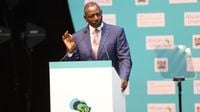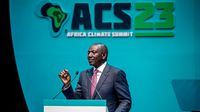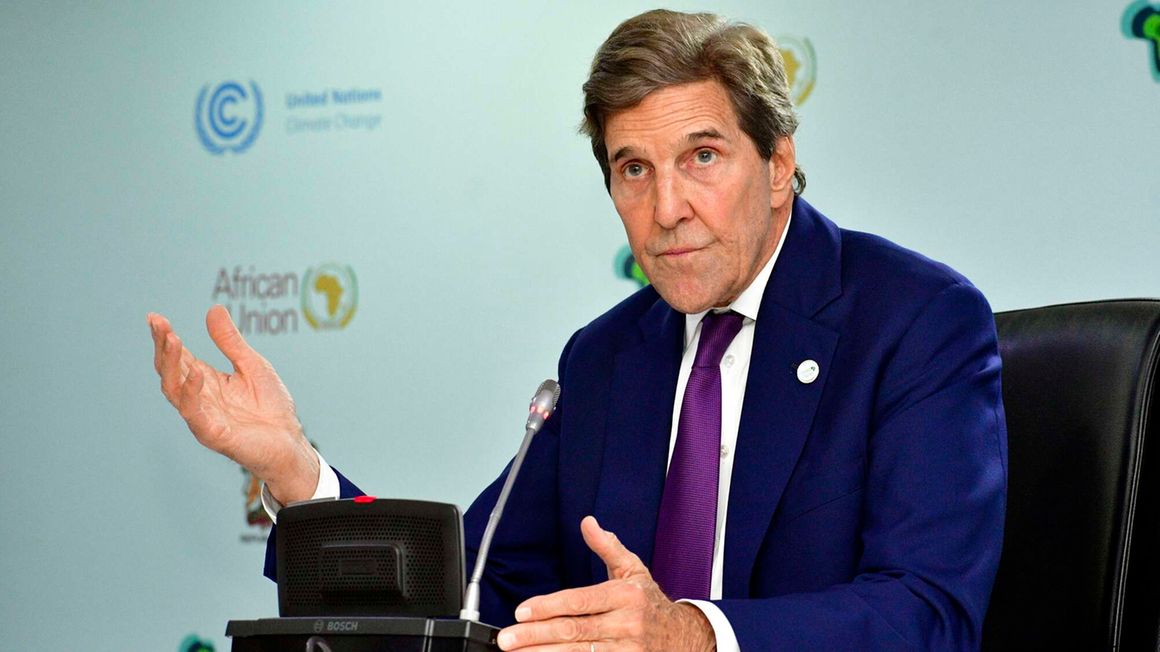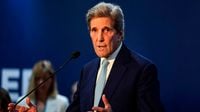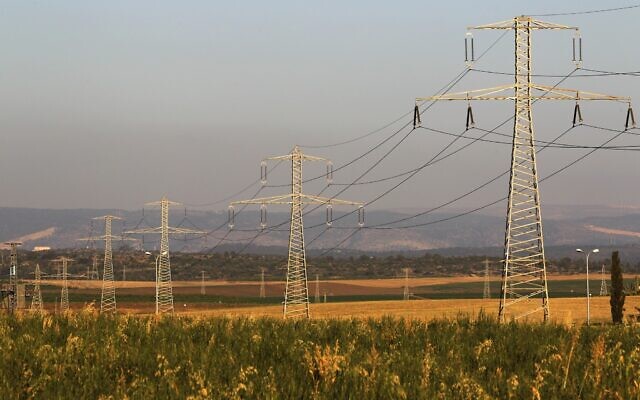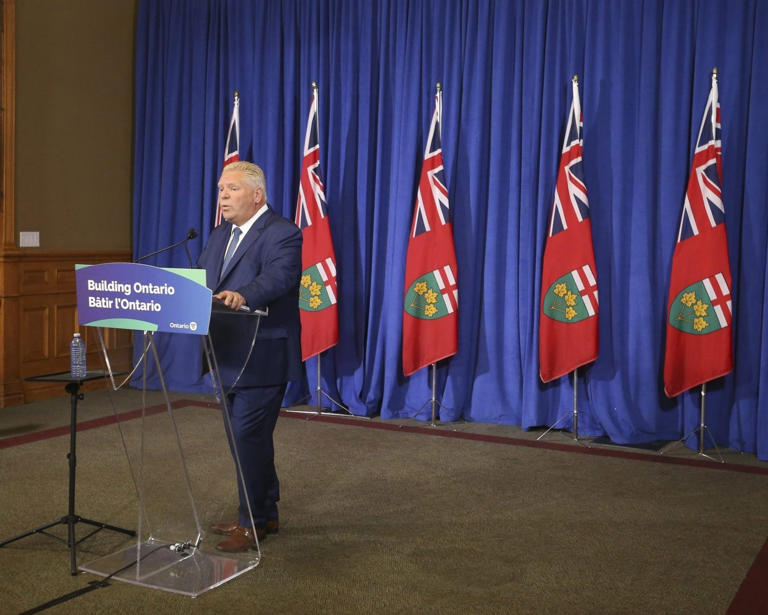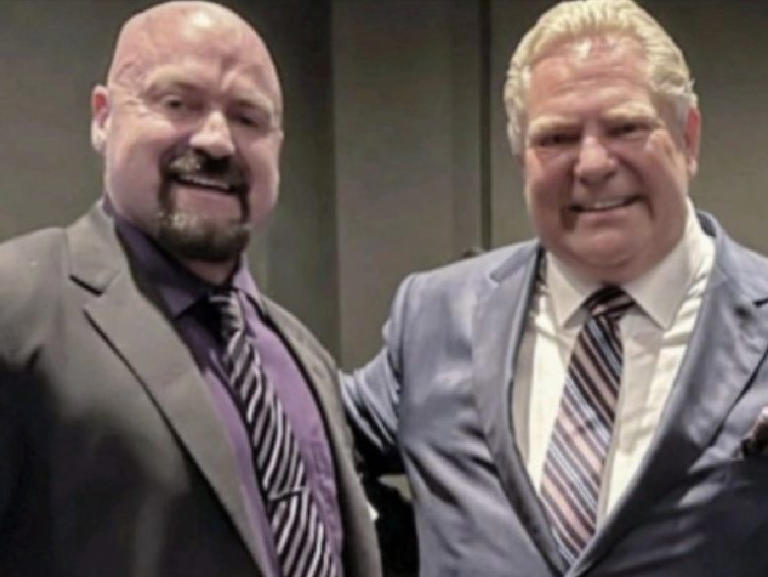MONDAY SEPTEMBER 04 2023

A Russian tank in a firing exercise field.
By JULIUS BARIGABA
More by this Author
countries. Yet, new details show that arms supply is just as much the bloc’s area of specialisation, to eastern African countries.
The Brics arms race, it turns out, is already playing out in eastern Africa as new data indicates that in 2021 and 2022, Uganda and Rwanda were the biggest importers of Russian arms, while Ethiopia and Tanzania sourced their military firepower from China.
This is according to the Stockholm International Peace Research Institute (Sipri) arms transfer database.
In its August update — dated just before the August 22-24 Brics Summit in South Africa — Sipri, showed that Russia and China dominate supplies while India is the bloc’s and the world’s biggest arms importer. Sipri often research and maps conflicts, arms control and purchases.
Read: Russia passes China in sub-Saharan Africa arms supply
The update studied arms transfers for the period 2008 — 2022, to see whether the trend of trading between Brazil, Russia, India, China and South Africa — which until the formal admission of six new members constituted the Brics group — is also reflected in arms trade between themselves.
Related
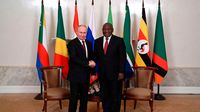
South Africa's 'Putin problem' now a headache to Brics bloc


US warns over China plan for Kenya army bases
According to Sipri, the Brics is an important economic bloc and trade between its members is growing. Data shows that Russia has remained the top supplier of arms to India in the last 14 years, while the Asian nation was also the number one export market for Russian arms exports.
“However, Russia’s share fell from 78 percent in 2008-12 to 45 percent in 2018-22, while France, Israel and USA all gained ground,” the think tank explains.
According to Sipri, China receives most of its major arms imports from Russia and was ranked the number two market for Russian arms exports in 2008-2022, but the Asian giant is becoming less reliant on arms imports, including from Russia as its domestic arms industry grows rapidly.
While India was the world’s number one importer of major arms from 2008 – 2022, China ranked third while other Brics members imported much smaller volumes, ranking 36th, 55th and 63rd for Brazil, South Africa and Russia respectively, according to Sipri.
In terms of exports, Russia, ranked number two globally after the US, while China was number five, with India, Brazil and South Africa having relatively small domestic arms industries but keen to increase their exports.
In East Africa, Uganda was ranked Russia’s biggest market in 2022, importing weapons worth $48 million out of a total import bill of $55 million, according to Sipri’s trend indicator values. Its other sources were Czechia ($4 million), Israel ($2 million), China ($1 million) and South Africa ($1 million).
Read: Ethiopia region’s biggest military spender in 2022
In 2021, Rwanda imported arms worth $46 million from Russia, $10 million from turkey and $2 million from the US.
In 2022, Ethiopia imported weapons valued at $35 million from China, while the previous year, its arms were sourced from Turkey ($5 million) and $6 million worth of weapons from unknown sources.
In 2021, Tanzania imported arms worth $29 million from China and also sourced weapons worth $24 million from France.
Somalia and the Democratic Republic of Congo sourced their arms from South Africa; Kenya and South Sudan are the only countries from region whose military supplies are not sourced from a Brics member during this period.
In 2009, Brazil, Russia, India, China and South Africa formed the bloc to counter western dominance in geopolitics, and to promote peace, security, development and cooperation; the inclusion of new members Argentina, Egypt, Ethiopia, Iran, Saudi Arabia and the United Arab Emirates is meant to share these goals wider.
Scholars view the Brics emergence as critical to establishing a new world order to bridge the widening gap between the actual role of emerging markets in the global system and their ability to participate in the decision-making process of global institutions.
According to Sipri, the Brics is an important economic bloc and trade between its members is growing. Data shows that Russia has remained the top supplier of arms to India in the last 14 years, while the Asian nation was also the number one export market for Russian arms exports.
“However, Russia’s share fell from 78 percent in 2008-12 to 45 percent in 2018-22, while France, Israel and USA all gained ground,” the think tank explains.
According to Sipri, China receives most of its major arms imports from Russia and was ranked the number two market for Russian arms exports in 2008-2022, but the Asian giant is becoming less reliant on arms imports, including from Russia as its domestic arms industry grows rapidly.
While India was the world’s number one importer of major arms from 2008 – 2022, China ranked third while other Brics members imported much smaller volumes, ranking 36th, 55th and 63rd for Brazil, South Africa and Russia respectively, according to Sipri.
In terms of exports, Russia, ranked number two globally after the US, while China was number five, with India, Brazil and South Africa having relatively small domestic arms industries but keen to increase their exports.
In East Africa, Uganda was ranked Russia’s biggest market in 2022, importing weapons worth $48 million out of a total import bill of $55 million, according to Sipri’s trend indicator values. Its other sources were Czechia ($4 million), Israel ($2 million), China ($1 million) and South Africa ($1 million).
Read: Ethiopia region’s biggest military spender in 2022
In 2021, Rwanda imported arms worth $46 million from Russia, $10 million from turkey and $2 million from the US.
In 2022, Ethiopia imported weapons valued at $35 million from China, while the previous year, its arms were sourced from Turkey ($5 million) and $6 million worth of weapons from unknown sources.
In 2021, Tanzania imported arms worth $29 million from China and also sourced weapons worth $24 million from France.
Somalia and the Democratic Republic of Congo sourced their arms from South Africa; Kenya and South Sudan are the only countries from region whose military supplies are not sourced from a Brics member during this period.
In 2009, Brazil, Russia, India, China and South Africa formed the bloc to counter western dominance in geopolitics, and to promote peace, security, development and cooperation; the inclusion of new members Argentina, Egypt, Ethiopia, Iran, Saudi Arabia and the United Arab Emirates is meant to share these goals wider.
Scholars view the Brics emergence as critical to establishing a new world order to bridge the widening gap between the actual role of emerging markets in the global system and their ability to participate in the decision-making process of global institutions.


